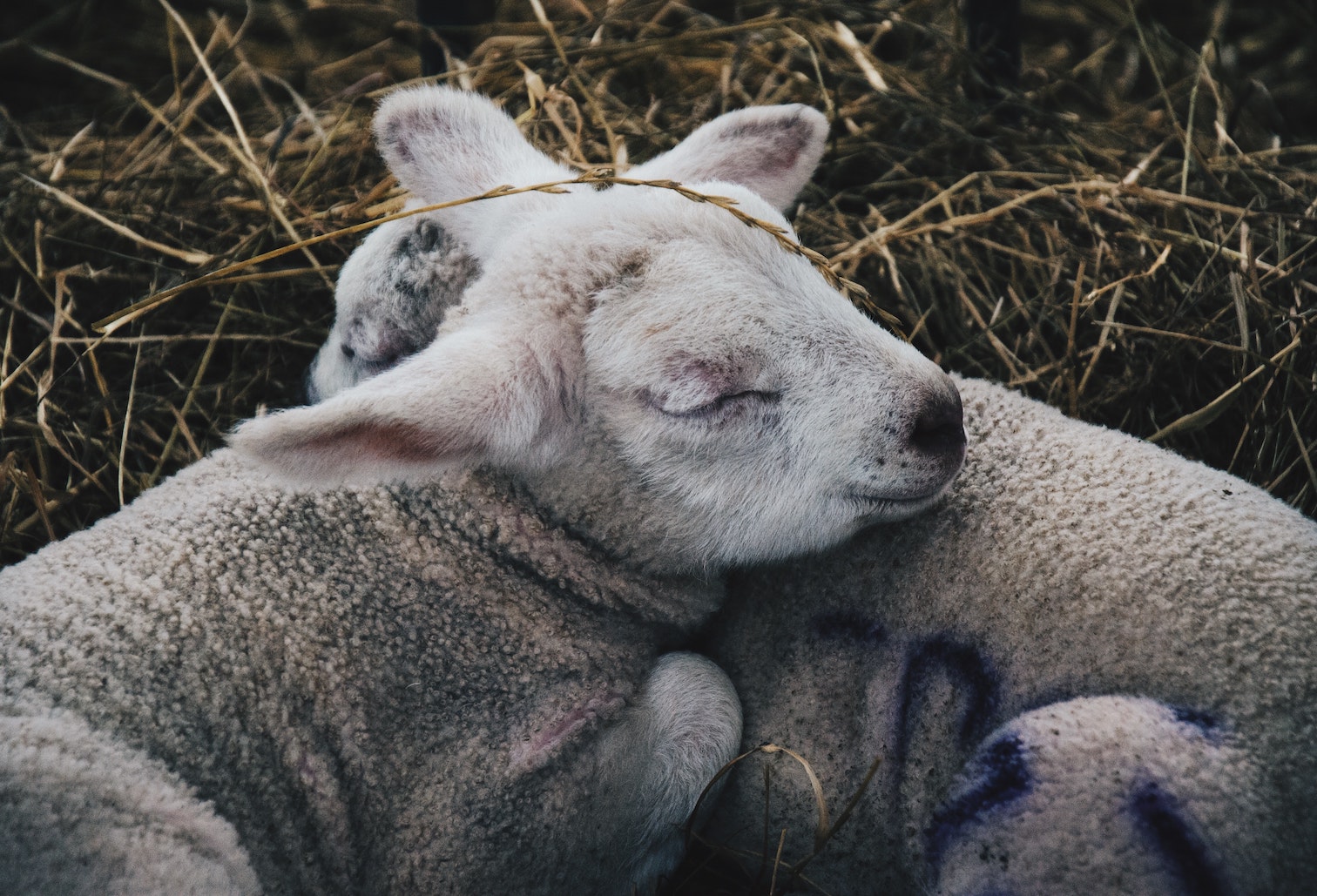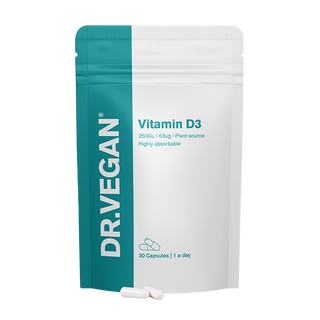Animal ingredients in supplements - what you need to know

Lambs’ tongues, pig stomach linings, boiled sheep’s wool, shellfish cartilage, boiled hooves… these are just some of the sources of common ingredients found in vitamin and mineral supplements sold on the high street.
They're used as active ingredients or bulking, binding or colouring agents in tablets and capsules, alongside other nasty ingredients including talcum powder and titanium dioxide, classified as a carcinogen. Sadly many people are also duped into buying supplements with nasty additives by fake expert reviews and false advertising, so the ASA has started to take action against supplement companies found guilty of using misleading and fake claims. In our latest daily multi-vitamin consumer survey, we found that 4 in 10 people don't know how to check the label, what to look out for, or which ingredients contain nasty additives.
Whatever your diet, plant-based or not, there's a healthier way to get the nutrients your body needs. DR.VEGAN only uses clinically studied, plant-based and naturally sourced ingredients, in their most bio-available form, to create uniquely efficacious formulas that work, and with zero nasty additives or animal ingredients.
What's your diet missing? Create your free Diet Profile.
12 common animal ingredients in supplements
Here are 12 of the most common animal ingredients to watch out for in your supplements, foods and cosmetics.
1. Gelatin
Gelatin is a very common additive often found in supplements, usually used as a coating ingredient for tablets or filler in capsules and gels. It is also commonly found in puddings and desserts. And its source? From boiling the hooves, stomach, ligaments, tendons and tissue linings of cattle and pigs!
2. Lanolin
Lanolin is the most common source of Vitamin D on the high street, and is sourced from boiled sheep’s wool. It is extracted by washing the wool in hot water with detergent before centrifugal separation or solvent extraction. Animal based Vitamin D is commonly used in supplements because historically it has been cheaper than vegan Vitamin D3, which is sourced from algae, however given the growth in demand for plant-based supplements, Vegan Vitamin D3 is now more cost effective.
3. Collagen
Collagen is a very popular supplement, in particular in many hair, skin and nail supplements. But not many people realise where collagen comes from. Collagen is a fibrous protein found in the connective tissues of animals. Supplement companies boil the cow bones and tissues in water, from where the collagen is extracted, dried and turned into a powdered supplement. It's the same process for marine based collagen.
Learn more in 'The truth about collagen'.

Some companies call their products “vegan collagen” but remember this doesn’t actually exist. It is more than likely the nutrients they provide help your body produce its own collagen - in fact, the only vegan collagen available is the collagen your own body produces.
4. Magnesium Stearate
Magnesium stearate is one of the most common nasty additives in supplements. It is a cheap, poor form of magnesium used as a filler or coating in tablets and capsules, and is found in many multivitamins. Magnesium stearate is a fatty acid, normally derived from pork but can also be found in chicken, beef, fish and milk. The problem with magnesium stearate is it can have side effects, the most common being a laxative effect by irritating the mucus lining in your bowels, triggering bowel movements or diarrhea.
5. Glucosamine & Chondroitin
Often taken for osteoarthritis, joint aches and pains, and used in many skin creams, Glucosamine and Chondroitin occur naturally in connective tissues of humans to help protect cartilage.
For supplements, they’re derived from shellfish and shark's cartilage respectively. Check your supplements to see if they contain shark cartilage as there are many other options that are cruelty-free.
4 things to watch out for when buying supplements
6. Glycerine
Glycerine is often used in supplements as a preservative and sweetener, and is a form of sugar alcohol that is difficult for your body to absorb. While it can be plant-based and derived from soybeans, glycerine is more commonly derived from animal sources, including beef or mutton fat.
7. Caprylic Acid
Derived from goats, sheep or cow’s milk, Caprylic Acid is often used as a filler or coating ingredient in tablets. Common side effects of caprylic acid are related to the gastrointestinal area, including diarrhoea, bloating and nausea.
8. Bone Meal
Sourced from animal bones, Bone Meal is very often found in calcium-based supplements. It can also be found commonly in bone broth (a soup often recommended for its bone health benefits) and can cause gastrointestinal side effects.
9. Carotene
Beta carotene converts in your body into Vitamin A and is a red-orange pigment found in plants and fruits, especially colourful vegetables. However, Carotene can also come from animal tissues so check this when choosing which supplement to take.
10. Carmine
Carmine is used as a red food dye in supplements, foods and cosmetics, and is derived from beetles and insects, mainly those that are native to South America. Insects and beetles are farmed and killed on an industrial scale, from which the carmine is extracted, and which is a totally unnecessary ingredient in supplements.
11. Lipase and Pepsin (Digestive Enzymes)
Digestive enzymes like pepsin and lipase can be plant-based, but always check the source as they can also be derived from lambs and calves. Lipase is more often derived from the tongues of calves and lambs. Pepsin is a digestive enzyme often included in supplements for digestion. Pepsin comes from the stomach lining of pigs.
12. Animal Hyaluronic Acid
A vital nutrient to support your skin hydration and the production of collagen, vegan forms of Hyaluronic acid are quite common. However, it can also come from rooster combs (the red fleshy growth on a rooster's head) - so double check your hyaluronic acid is vegan!

Next time you're buying your supplements, always read the label and if in doubt ask where the ingredients are from!
Want to discover higher quality and more ethical supplements?
View our range of vegan vitamins & supplements.
*This article contains data from UK surveys conducted by DR.VEGAN®. All survey findings reflect our own efforts and have not been influenced or verified by any external organisations or third-party entities.
Want to hear more from our nutritionists? Sign up to our email newsletter for insights and exclusive offers:




















